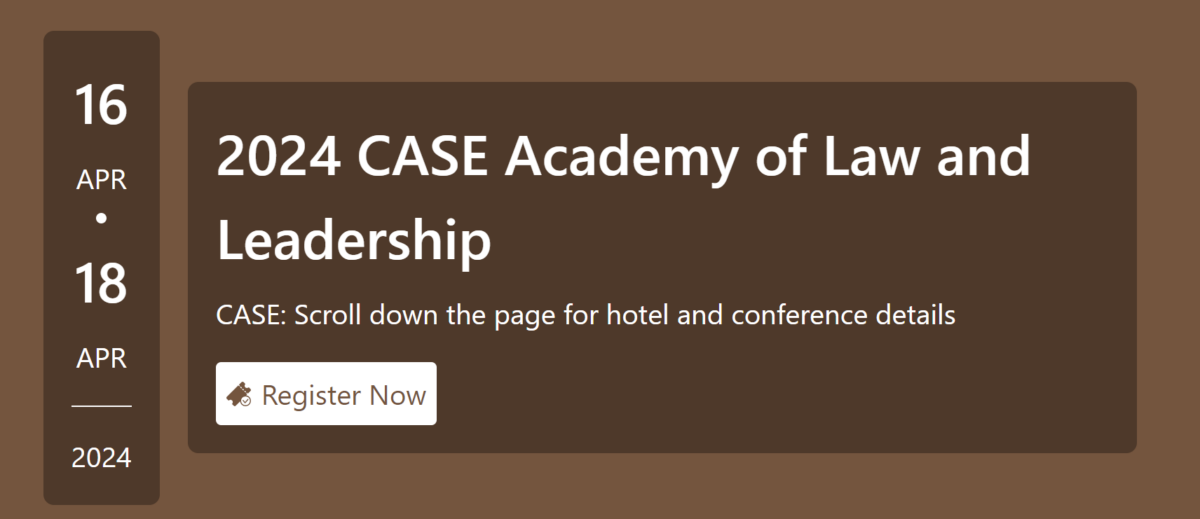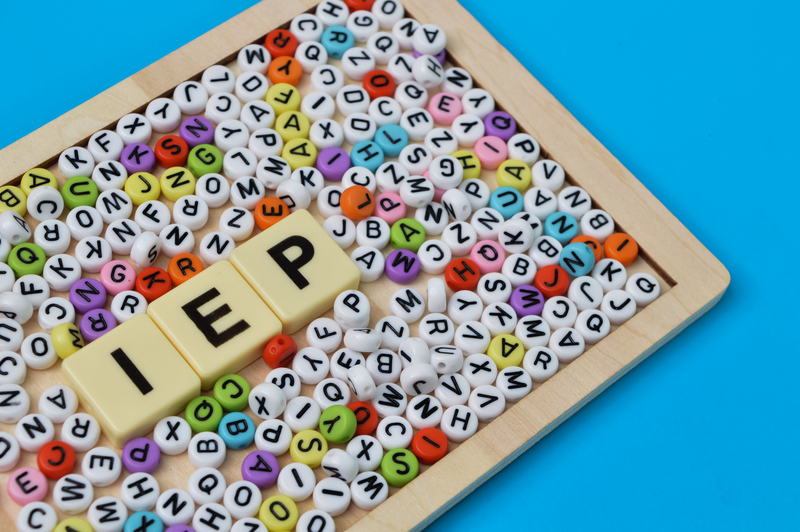CASE Academy of Law & Leadership
The New York Times recently highlighted a critical conversation sweeping across the nation – how we teach children to read. From school board meetings to statehouses, discussions and debates are on the rise, often accompanied by legal challenges concerning how best to address the needs of struggling readers. This renewed focus underscores the importance of equipping educators with the knowledge and tools needed to ensure all children flourish as readers.
Addressing the National Conversation and Landmark Court Decision
In response to this timely issue, the first-ever CASE Academy of Law & Leadership conference will feature a session titled “Reading and Special Education: The ‘It’ Topic.” CASE is the Council of Administrators of Special Education, an international professional organization that “provides leadership to advance the field of special education.” CASE’s conference, including sessions such as the reading topic above, will provide special education administrators and staff with practical, actionable guidance throughout the journey of supporting struggling readers.

Understanding the Landscape: The M.L.K. v. Minnetonka Public Schools Case and Beyond
At the conference, experts in law and reading will introduce several topics designed to equip educators with a multi-faceted approach to supporting struggling readers. This will include the current landscape of reading instruction, including the case of M.L.K. v. Minnetonka Public Schools. This case highlighted the importance of evidence-based reading instruction and the right of students with disabilities to receive appropriate interventions. Understanding this case and others like it provides a crucial foundation for making good decisions in IEPs.

The Reading and Special Education session will also address the benefits of early intervention, effective evaluations, and good IEPs, in helping students who struggle with reading. The key points in each of those important steps are described below.
Early Intervention: Identifying Struggles Before They Begin
Early reading intervention plays a critical role in improving special education outcomes because preventing learning gaps and laying the groundwork for literacy early, sets students up for future academic success. By proactively identifying students at risk for reading difficulties, educators can provide targeted support before students fall behind. This allows educators to efficiently identify students who may benefit from additional support, ensuring timely intervention and maximizing their success. Intervening early also targets crucial skills like phonological awareness, which involves hearing and distinguishing sounds in words, a fundamental skill in reading.
Effective Evaluations: Pinpointing Individual Needs
Once a student is identified as needing additional support, a thorough and individualized evaluation is crucial. This evaluation helps us pinpoint the specific nature of their reading struggles. Understanding these different areas allows for a comprehensive evaluation that paints a clear picture of a student’s strengths and weaknesses.
Most children typically learn to read between the ages of 6 and 7, according to data from the American Academy of Pediatrics. However, there is variation among individuals, with some starting as early as 4 or 5 and others only beginning by ages 6 or 7. There’s no fixed “right” age to start reading; it depends on the child’s development and readiness. Detailed diagnostic reading assessments and progress monitoring provide the effective evaluation and follow-through that students deserve.
Building IEPs that Work: Setting Clear Goals and Outlining Effective Interventions
Following an evaluation, the next step is crafting an Individualized Education Program (IEP) specifically designed to address the student’s unique reading needs. Once an IEP is in place, it is essential to continuously monitor the student’s progress. Alaa Houri will equip you with various strategies for progress monitoring. This might involve using curriculum-based measures (CBM) probes, fluency measures, or other tools that provide frequent data on the student’s reading skills. By regularly collecting and analyzing this data, we can gauge the effectiveness of the implemented interventions and ensure the student is on track to meet their established goals.

Responding to Monitored Progress: Utilizing Data to Drive Instruction
The data collected through progress monitoring is a valuable resource for making informed decisions about a student’s reading instruction. We will explore how to interpret this data and use it to adapt interventions as needed.
- Positive Progress: If the data shows consistent progress towards established goals, the intervention plan is likely effective and can be continued.
- Limited Progress: If the data indicates the student isn’t making sufficient progress, it might be time to adjust the intervention plan. This may involve increasing the intensity or frequency of the interventions, exploring alternative instructional strategies, or revisiting the IEP goals to ensure they are realistic and achievable.
- Regression: If the data shows the student is regressing, immediate action is necessary. Collaboration with the student’s parents and other support personnel may be needed to identify potential barriers to learning and to develop a more targeted plan moving forward.
By continuously monitoring progress and utilizing the data to refine instruction, we can ensure the interventions provided are tailored to meet the student’s specific needs and optimize their learning trajectory.
Collaboration is Key: Working Together for Success
It is important to remember that educators are not alone in this journey. Collaboration with parents, reading specialists, special education teachers, and other support personnel is crucial. Building strong relationships with these individuals allows for a comprehensive approach to supporting struggling readers. Open communication with parents ensures they are informed about their child’s
Connect with Let’s Go Learn
Don’t miss this opportunity to gain valuable insights and practical strategies for supporting struggling readers! Join us at the CASE Academy of Law & Leadership conference and take the next step in ensuring the success of all your students. Visit Let’s Go Learn at Booth #8 to learn more about the most comprehensive reading assessment on the market and discuss how it can benefit your classroom. Let’s work together to empower all children to flourish as readers!


Leave A Comment